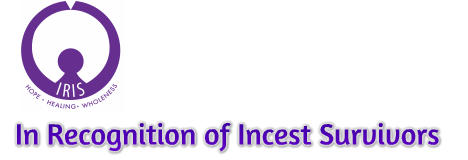Helpful Resources
We have written An Introduction to the Unthinkable to help contextualize the issue of incest and describe common physical and emotional impacts on survivors.
Below are some websites that we found very helpful in understanding incest and offering emotional and practical support for victims and survivors: Incest Victims - Why Children Don't Tell About Sexual Abuse A lot of victims of child sexual abuse usually don't report the abuse immediately. Here are a few of the reasons that prevent them from seeking help. The Child Advocacy Center This site dispels ten common myths about child sexual abuse. Rape Abuse & Incest National Network A site of activists for education and prevention of sexual assault and abuse. Darkness to Light: End Child Sexual Abuse Incredible resources and statistics, realistic but optimistic assessment of the situation, and real opportunities to be of service. Everyday Feminism: A great resource of current-generation thinking, advice and support on respect and an end to rape culture.
Recovery.org: Substance abuse accompanied by other mental health disorders is known by the term "dual diagnosis." This informative website is also a helpful resource for finding the specialized care that can be critical to successful treatment.
Strength for today:
|
Some Numbers... Good statistics are difficult to find, because the crime is so hidden, but estimates suggest incest survivors represent about 1 of every 14 American girls or women you know and 1 of every 20 boys or men [Darkness to Light]. We are all ages, from newborns to adults. We represent every race and socioeconomic status in this country – and live in all parts of this country. No race or class is exempt, regardless of attempts by the ignorant to classify the phenomenon as a rural, lower-class, or minority activity. Many of us are undiagnosed and untreated adults who were abused as children and now are struggling to find our way in the world while carrying a bewildering assortment of physical and emotional handicaps we often do not understand. Statistically, we are:
|

|
|
- Home
- About
-
The Bill of Rights
- One: we have the right to be safe.
- Two: we have the right to be heard.
- Three: we have the right to be believed.
- Four: we have the right to be angry.
- Five: we have the right to grieve.
- Six: we have the right to heal.
- Seven: we have the right to set appropriate boundaries.
- Eight: we have the right to choose if or how to confront the perpetrator.
- Nine: we have the right to a joyful, fulfilling sex life with someone we trust.
- Ten: we have the right to a loving, supportive family.
- Resources
- Voices
- Contact Us

